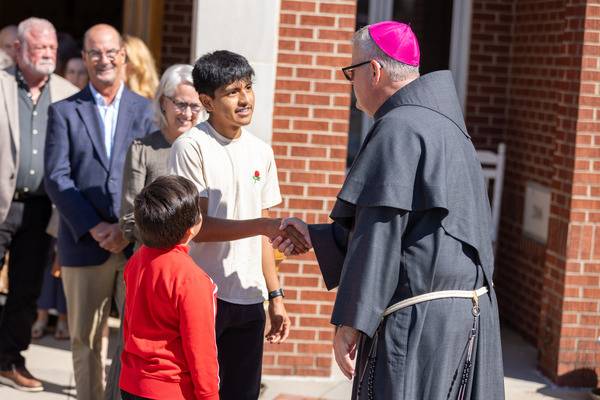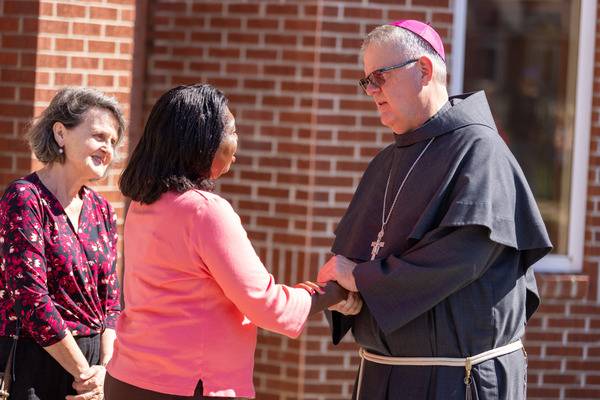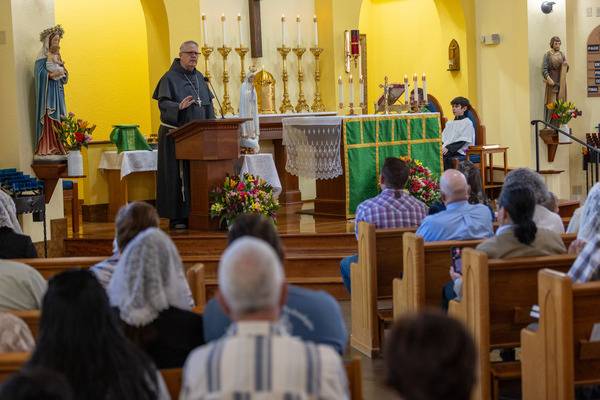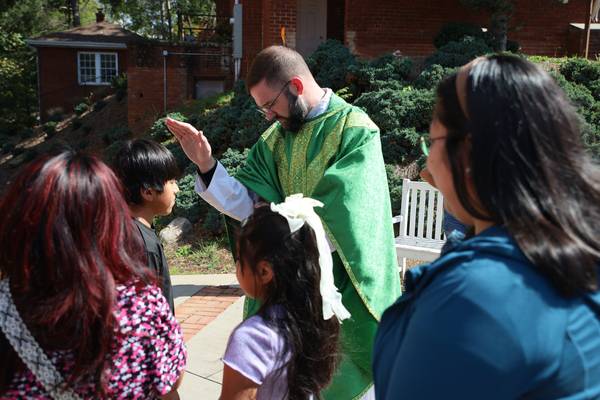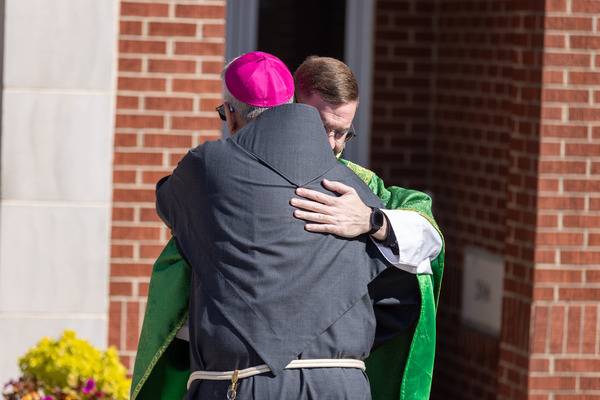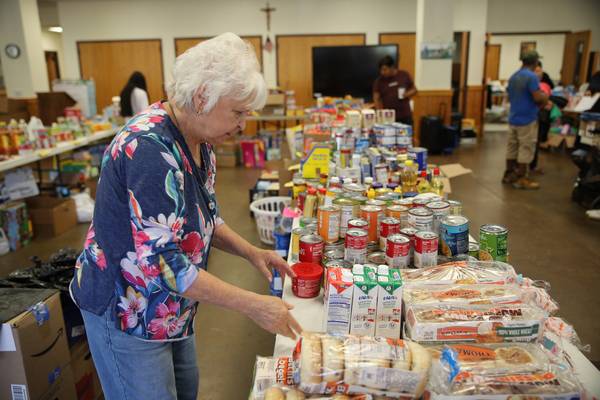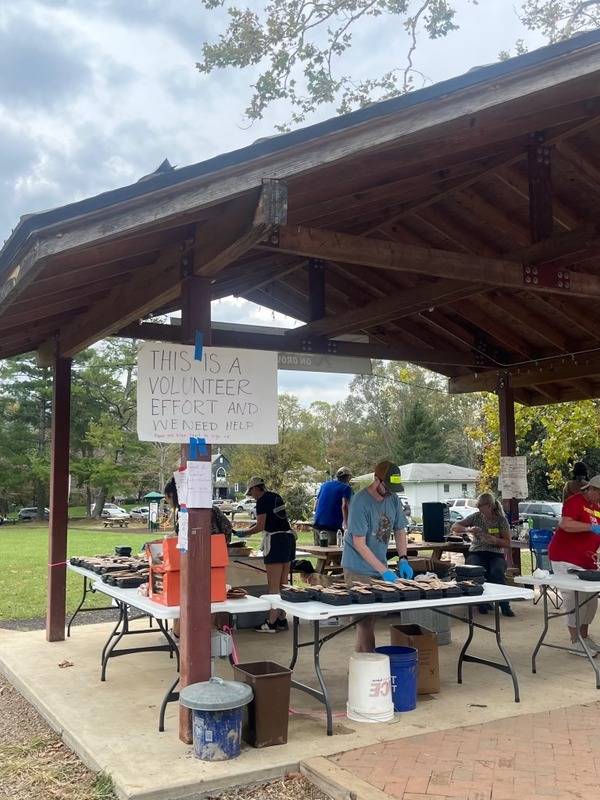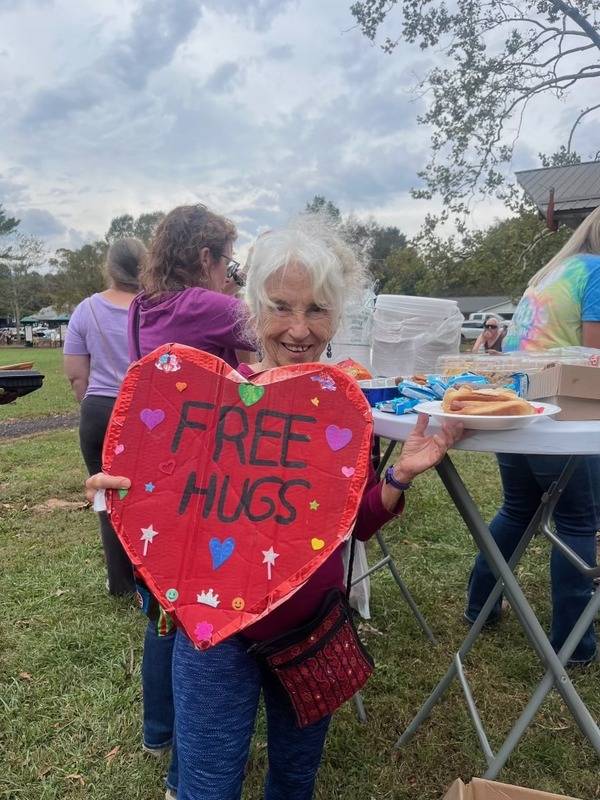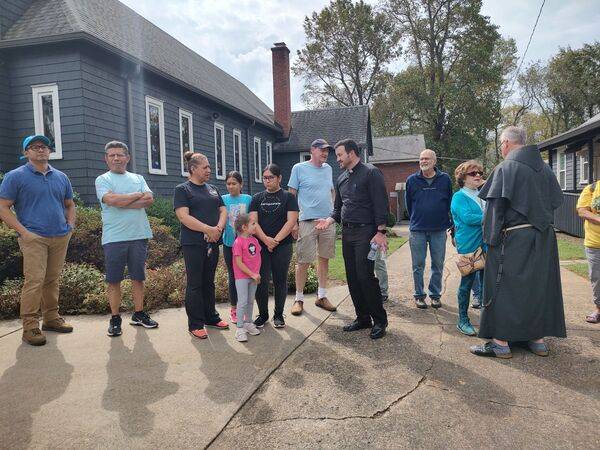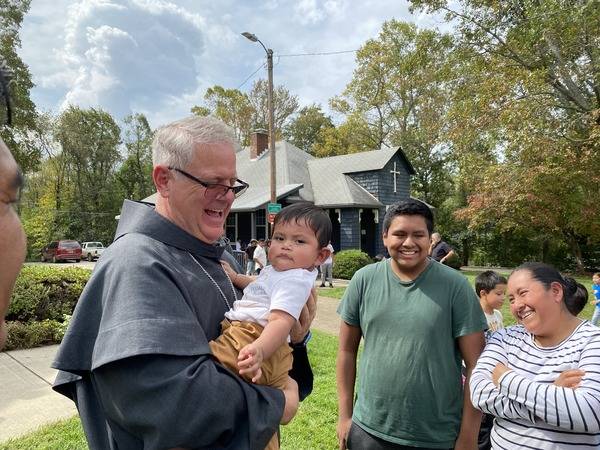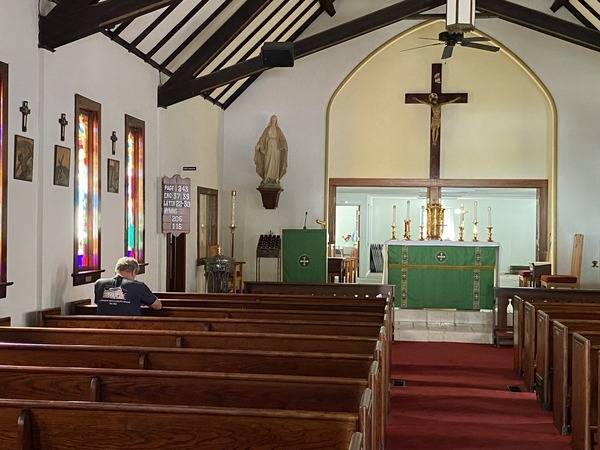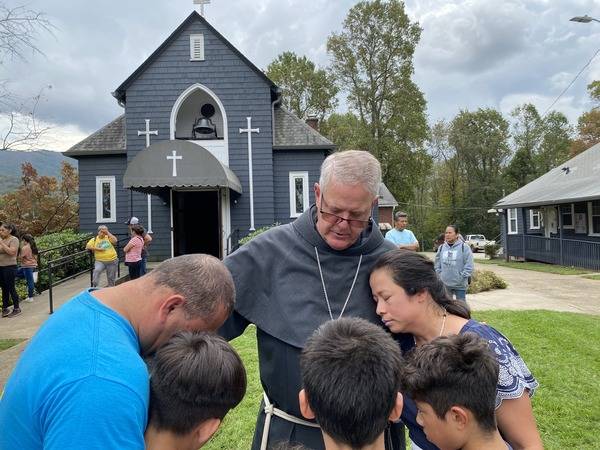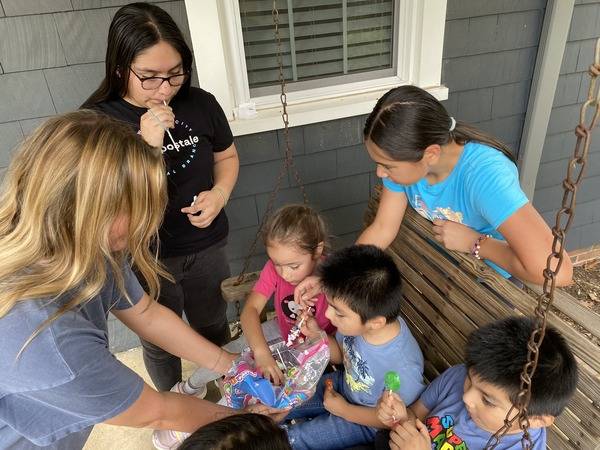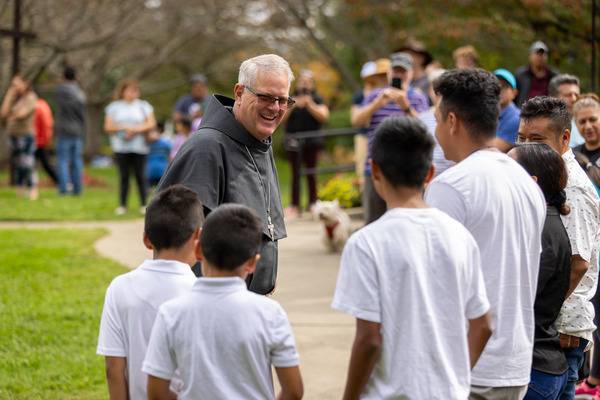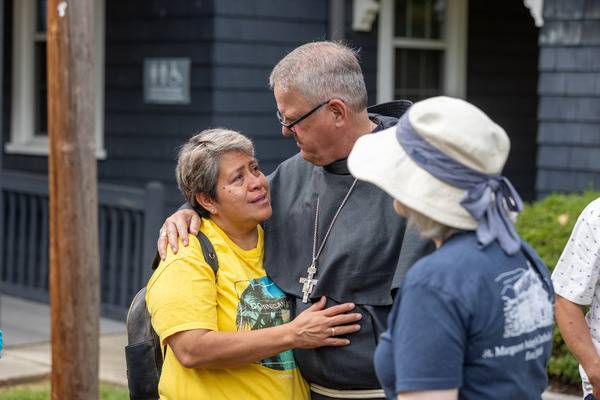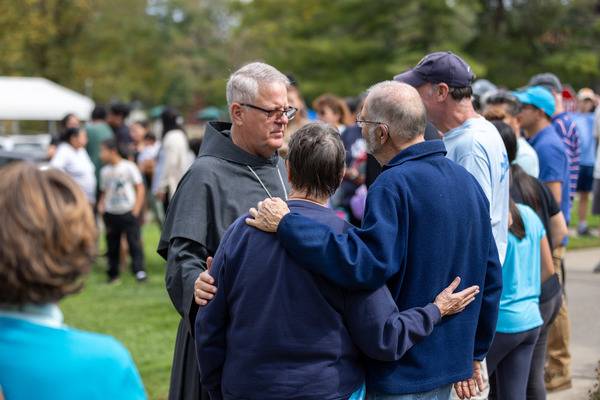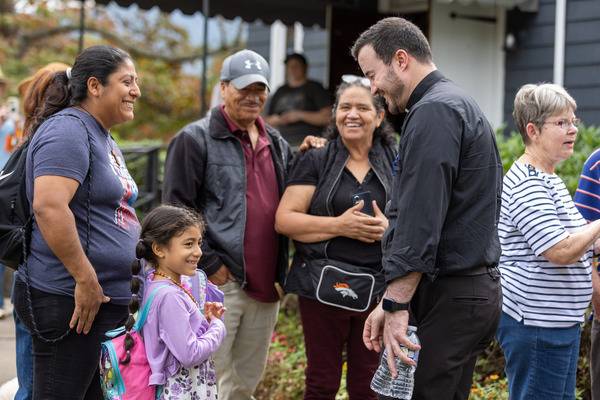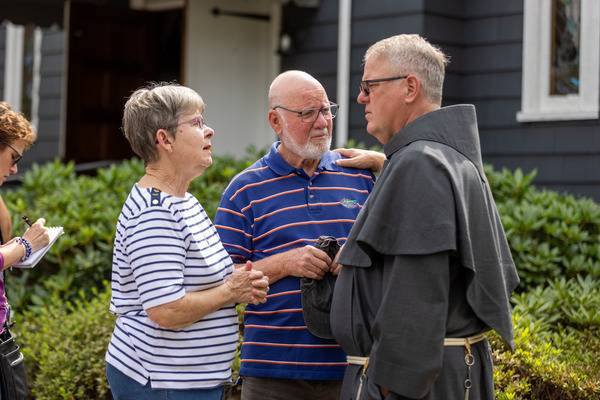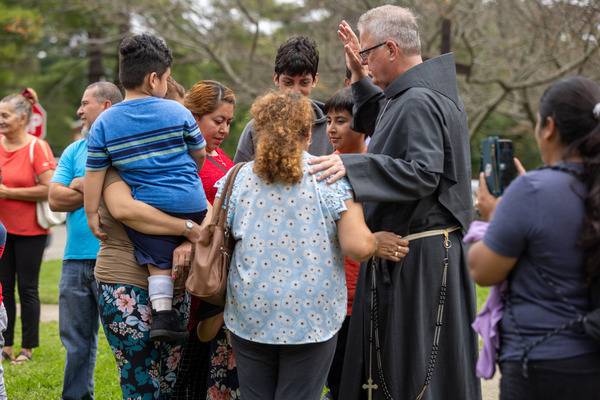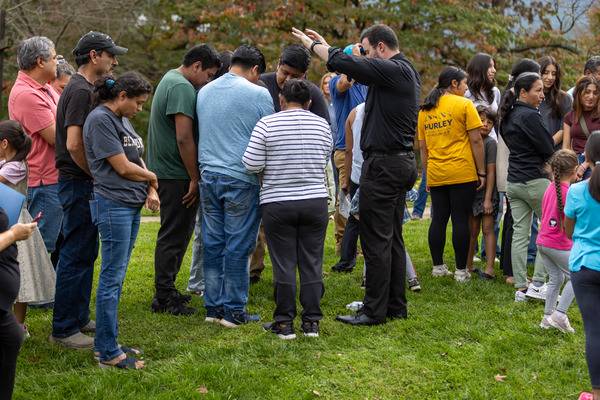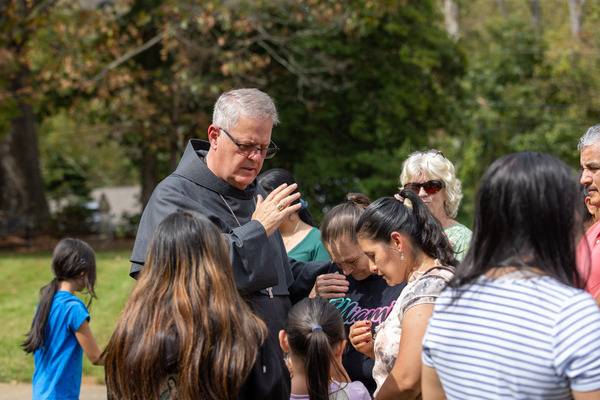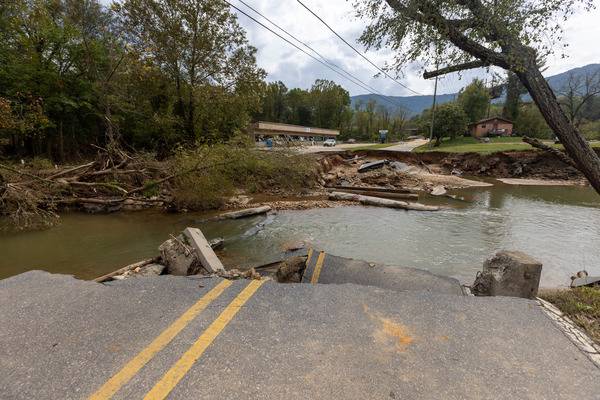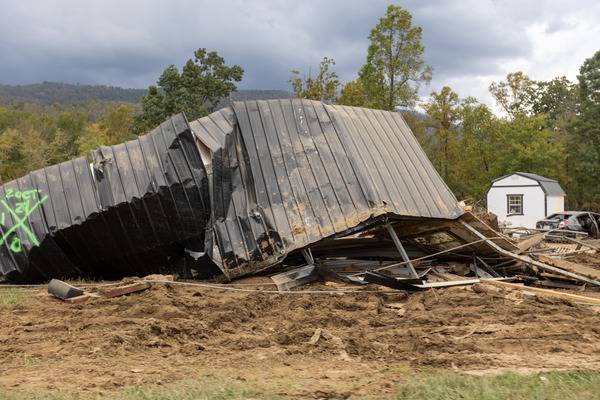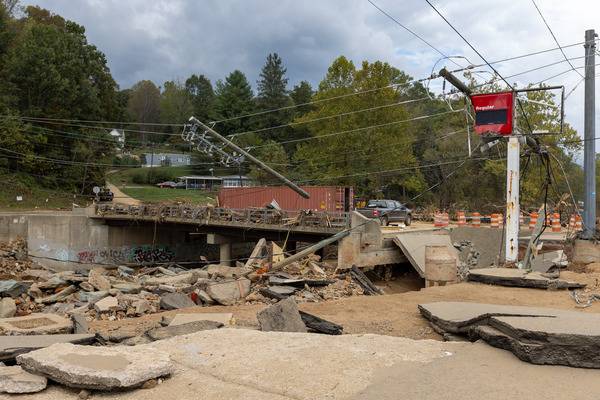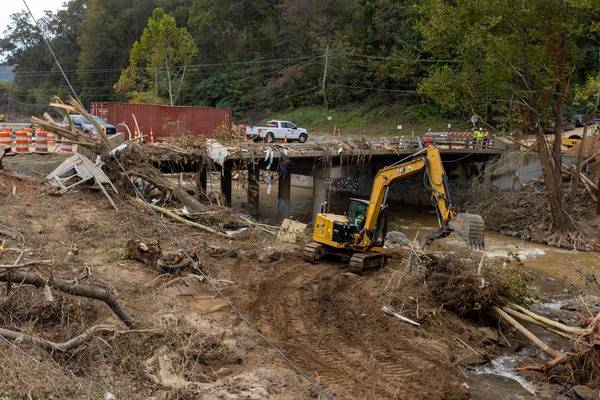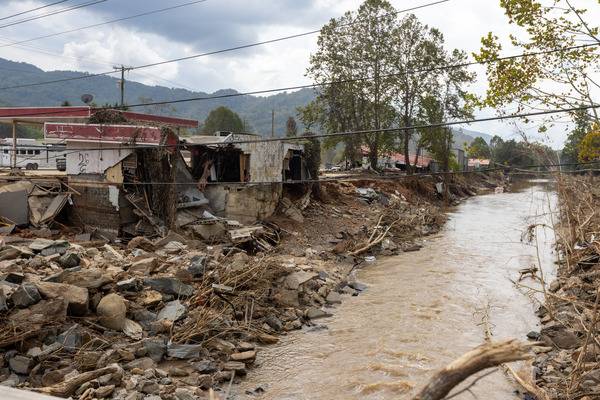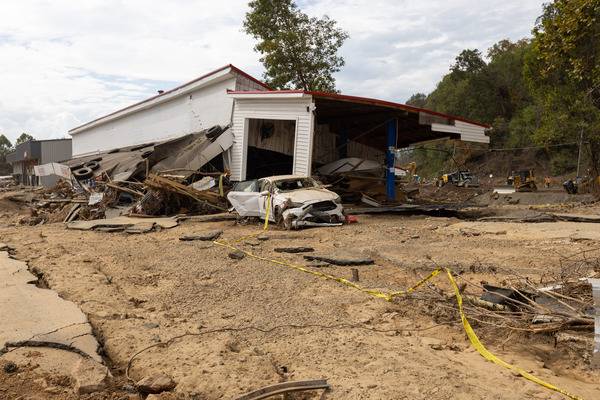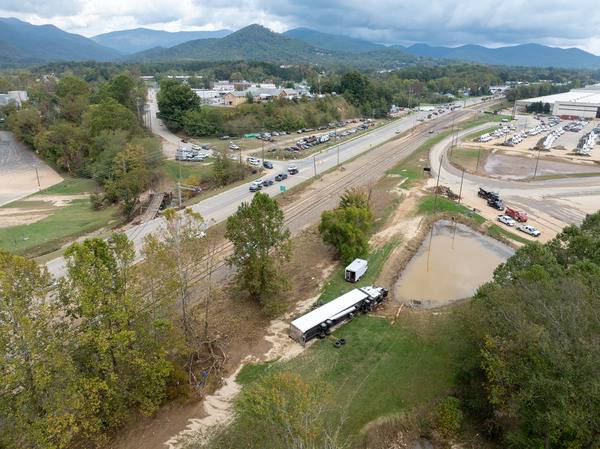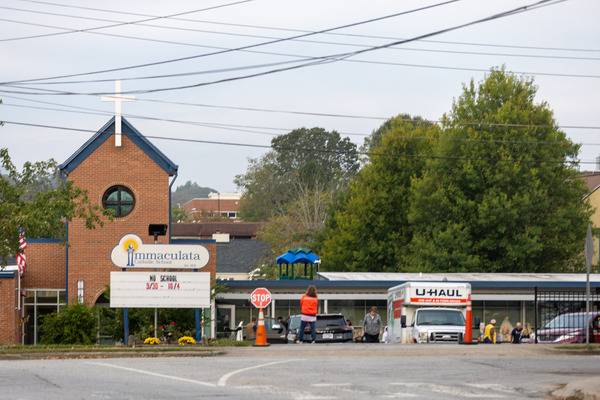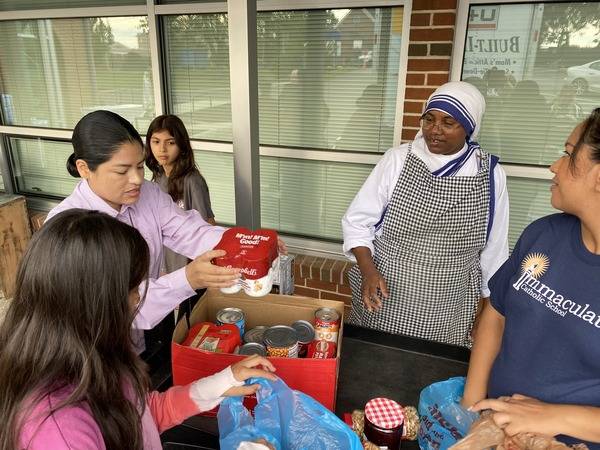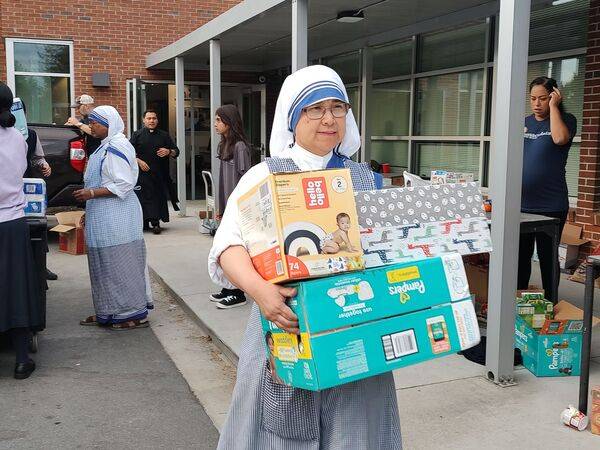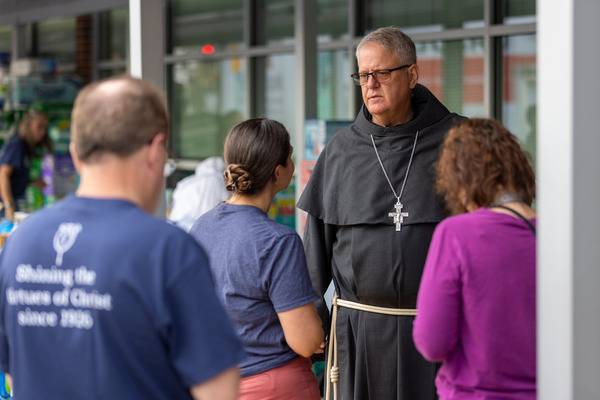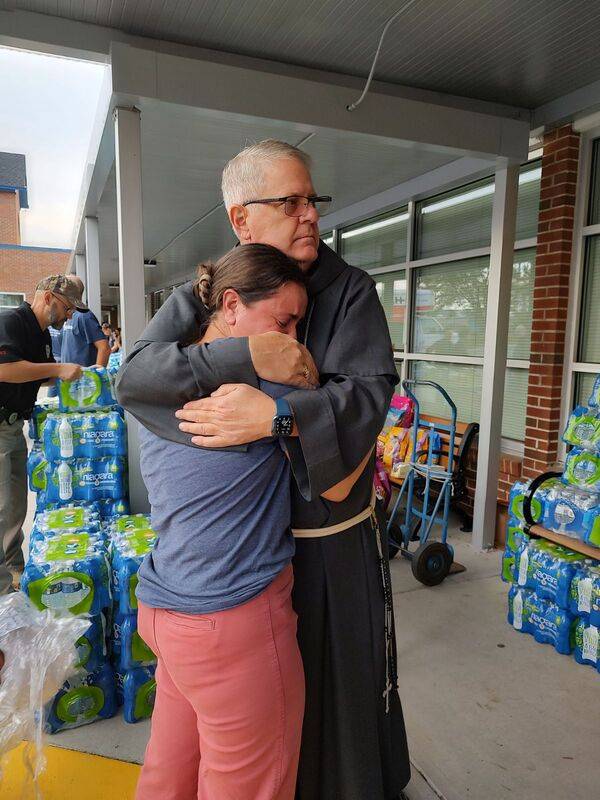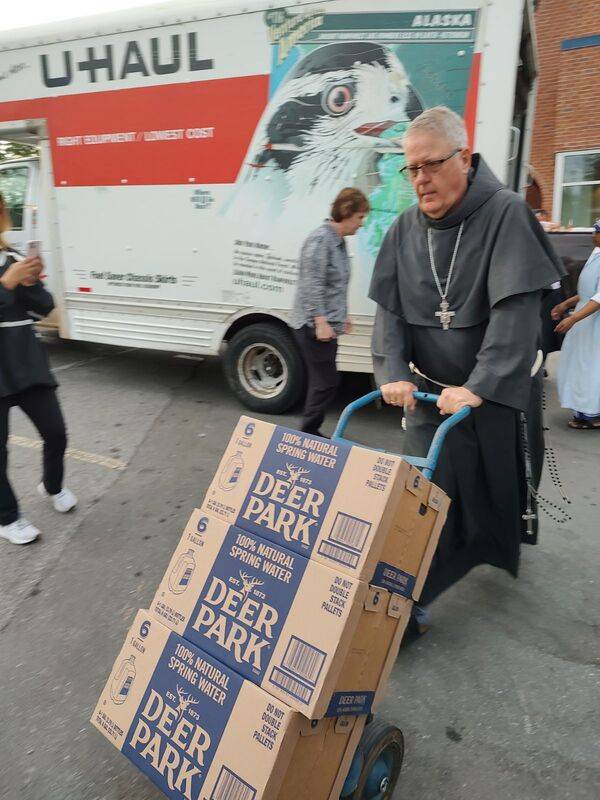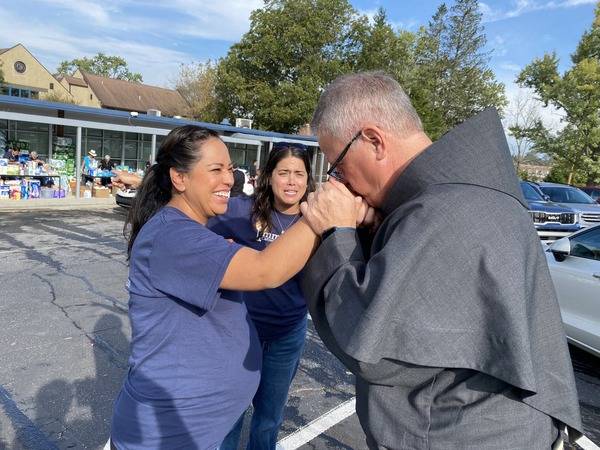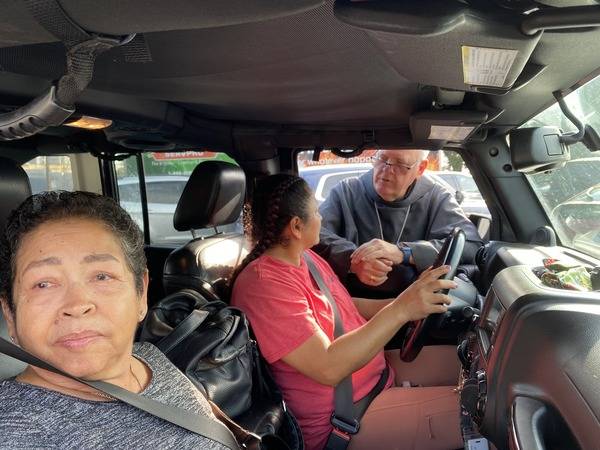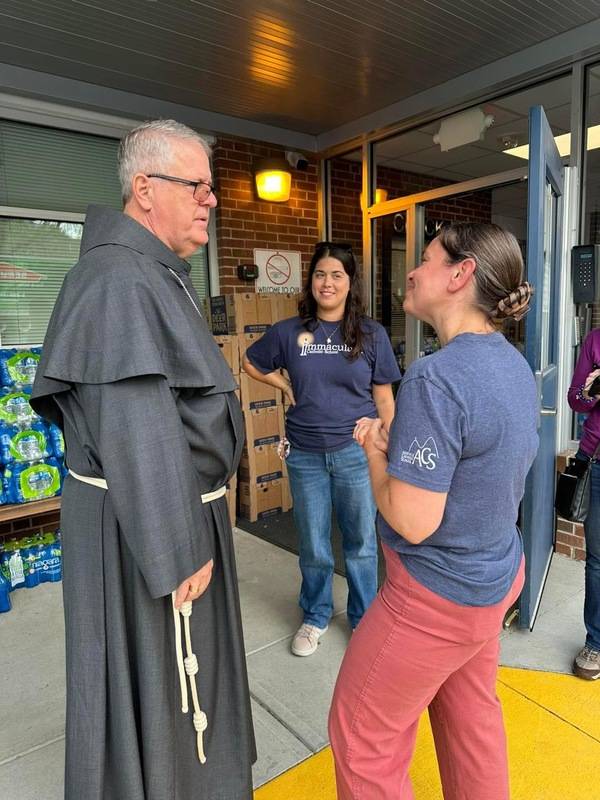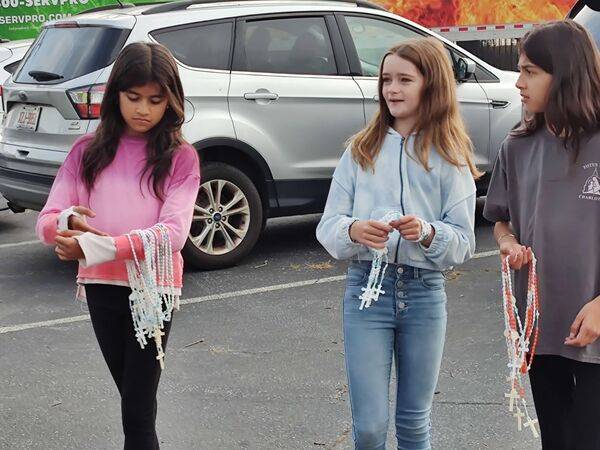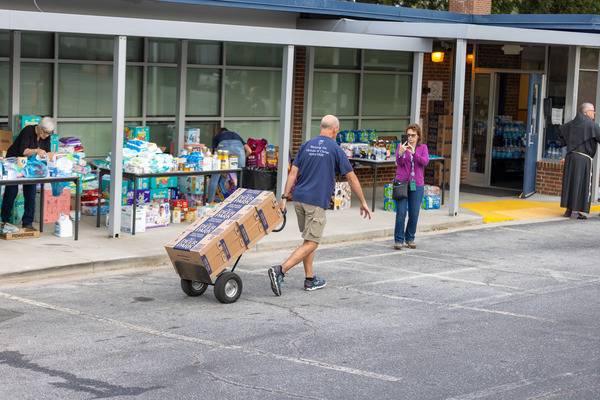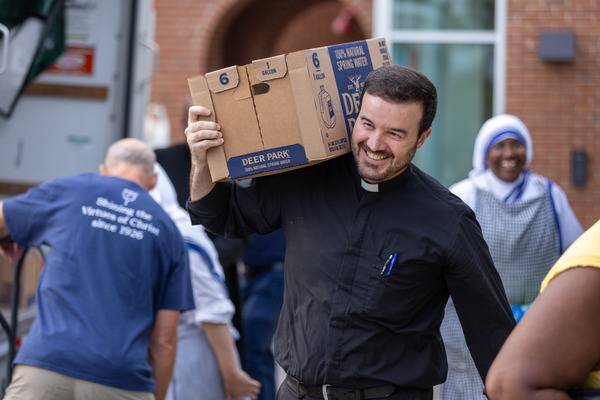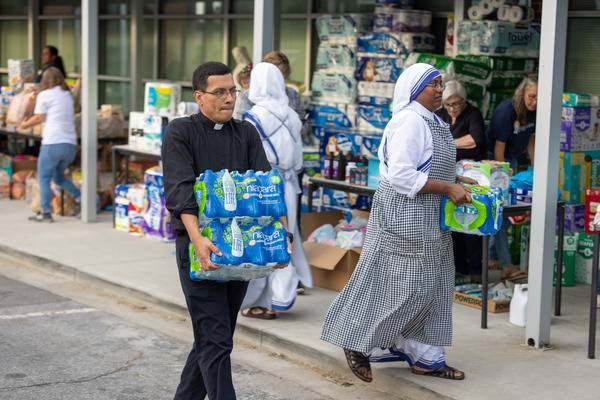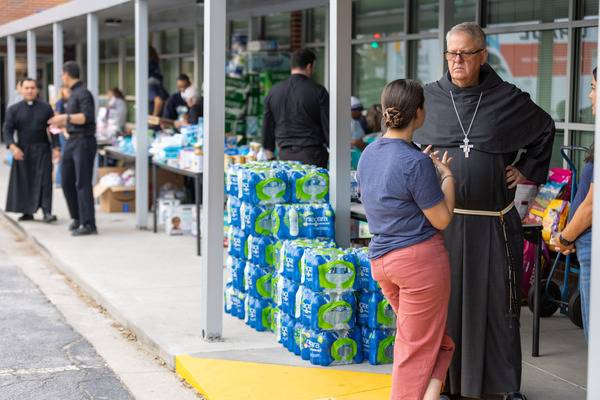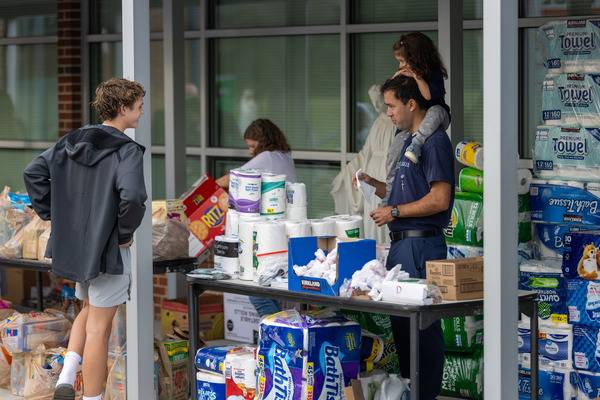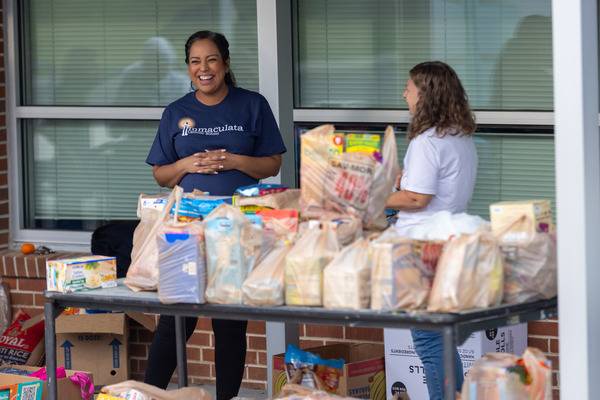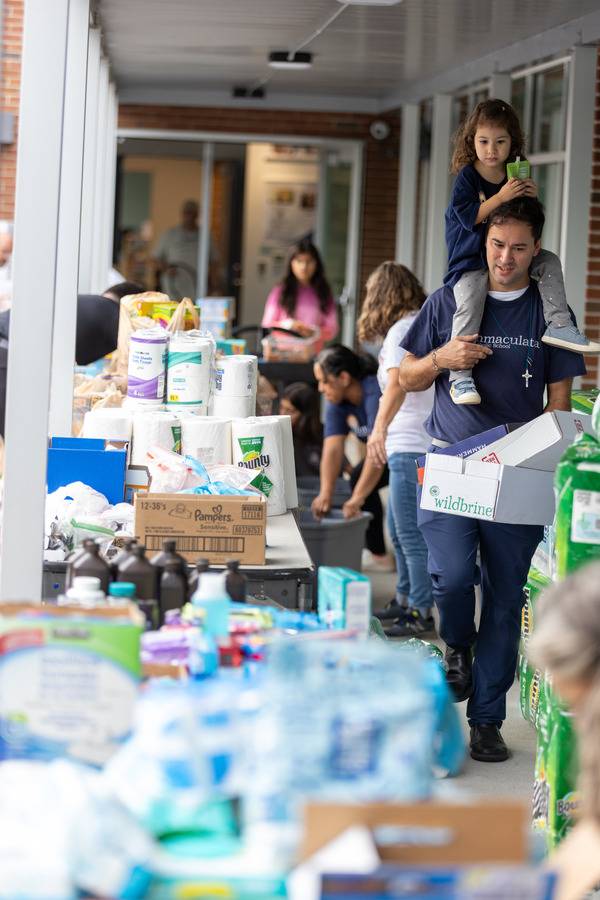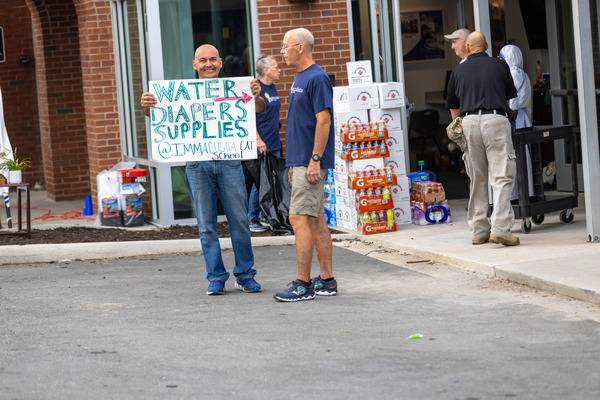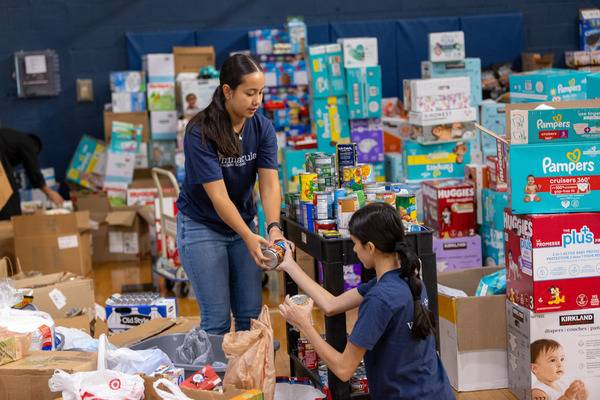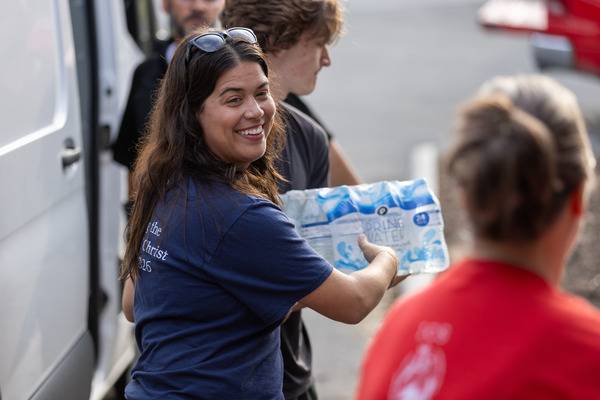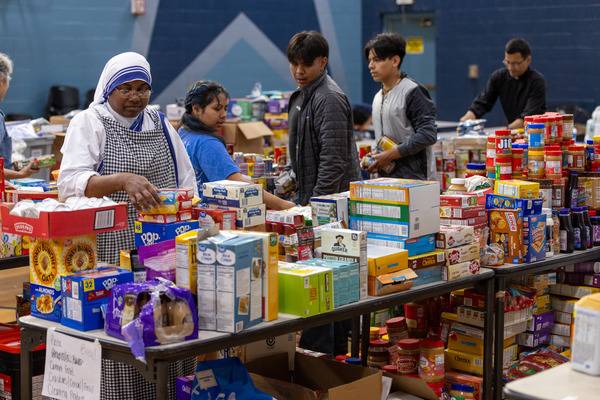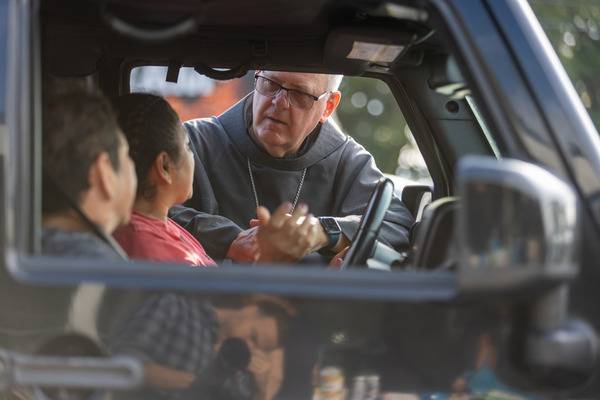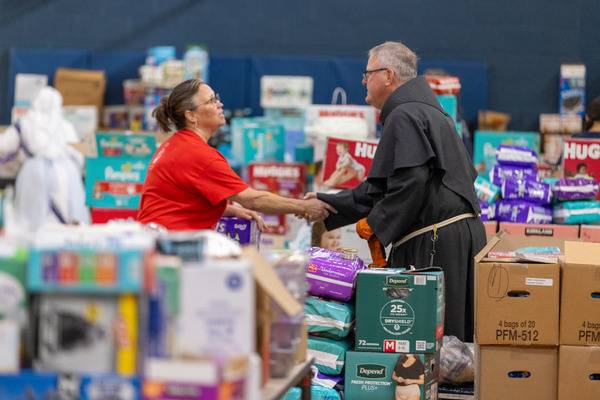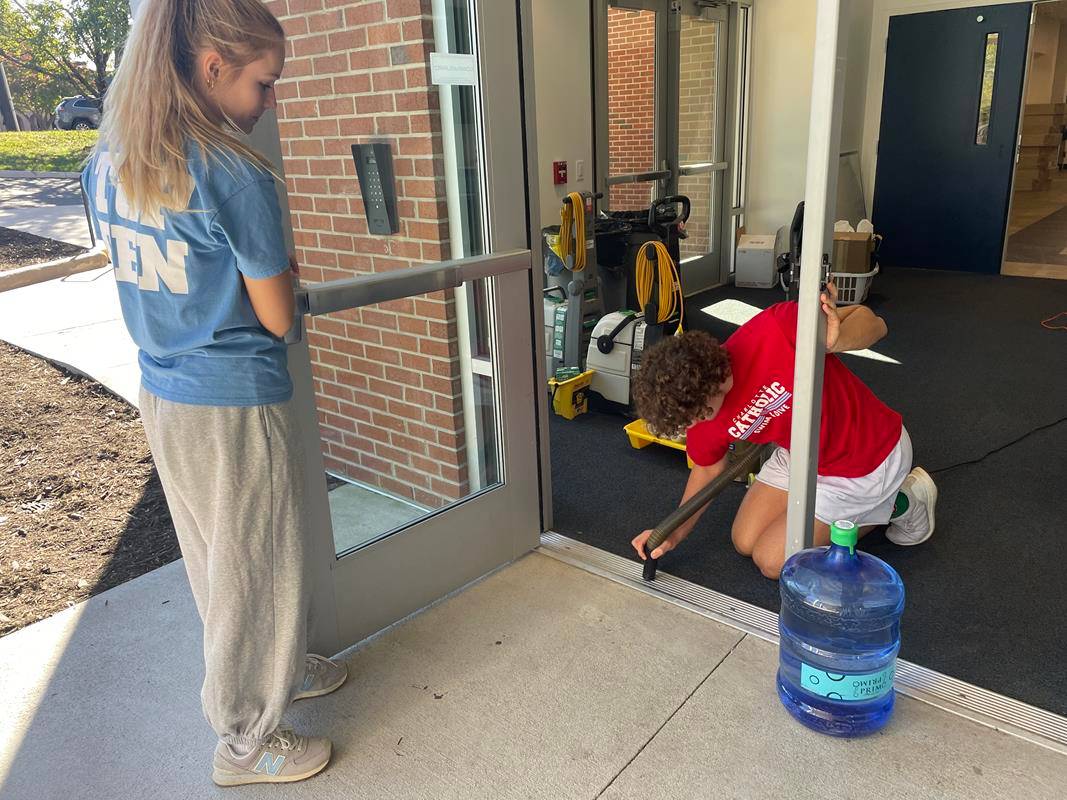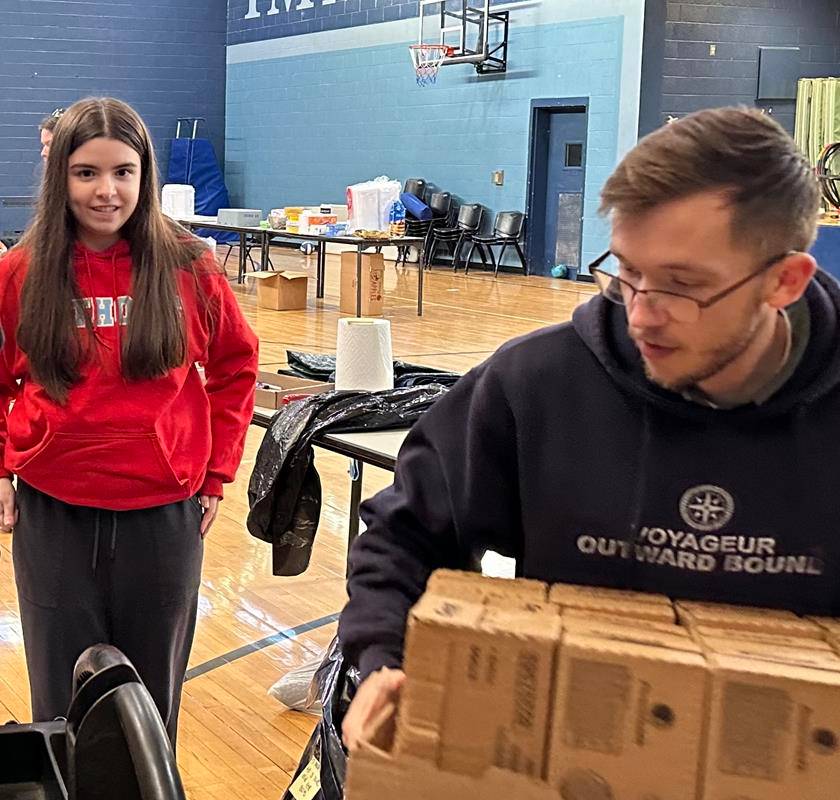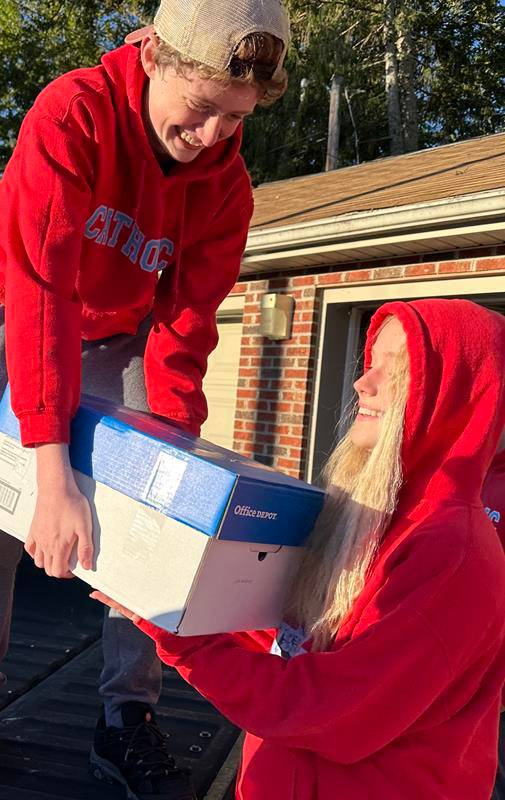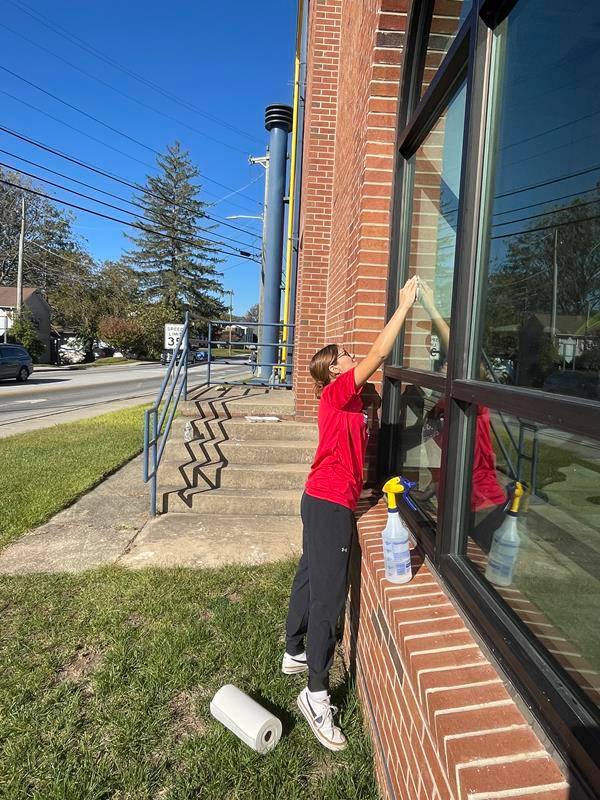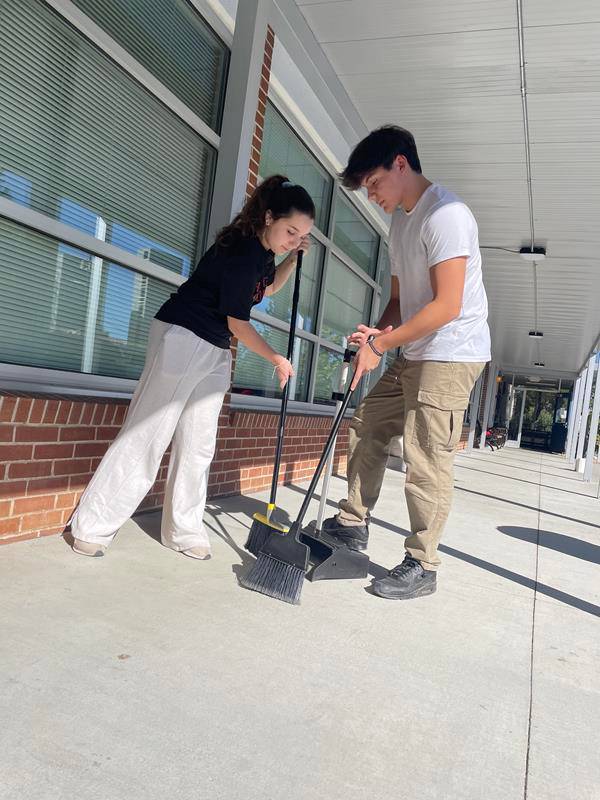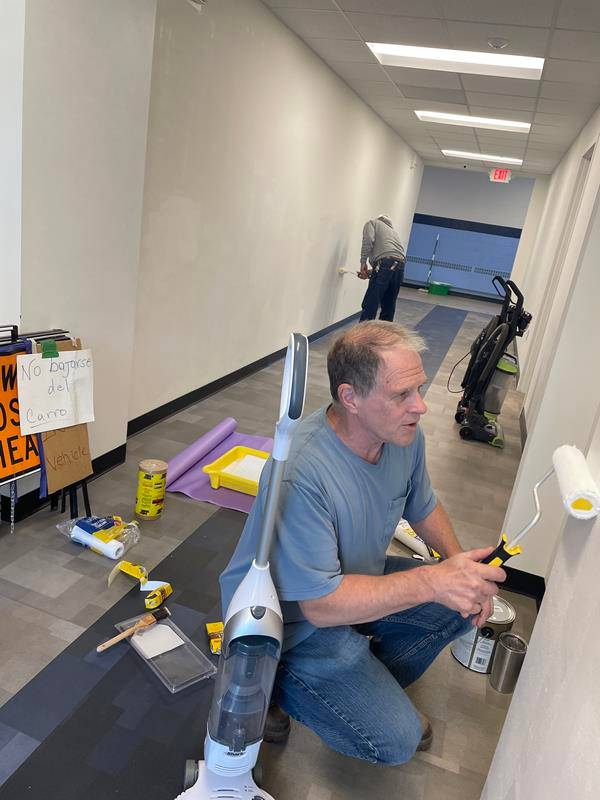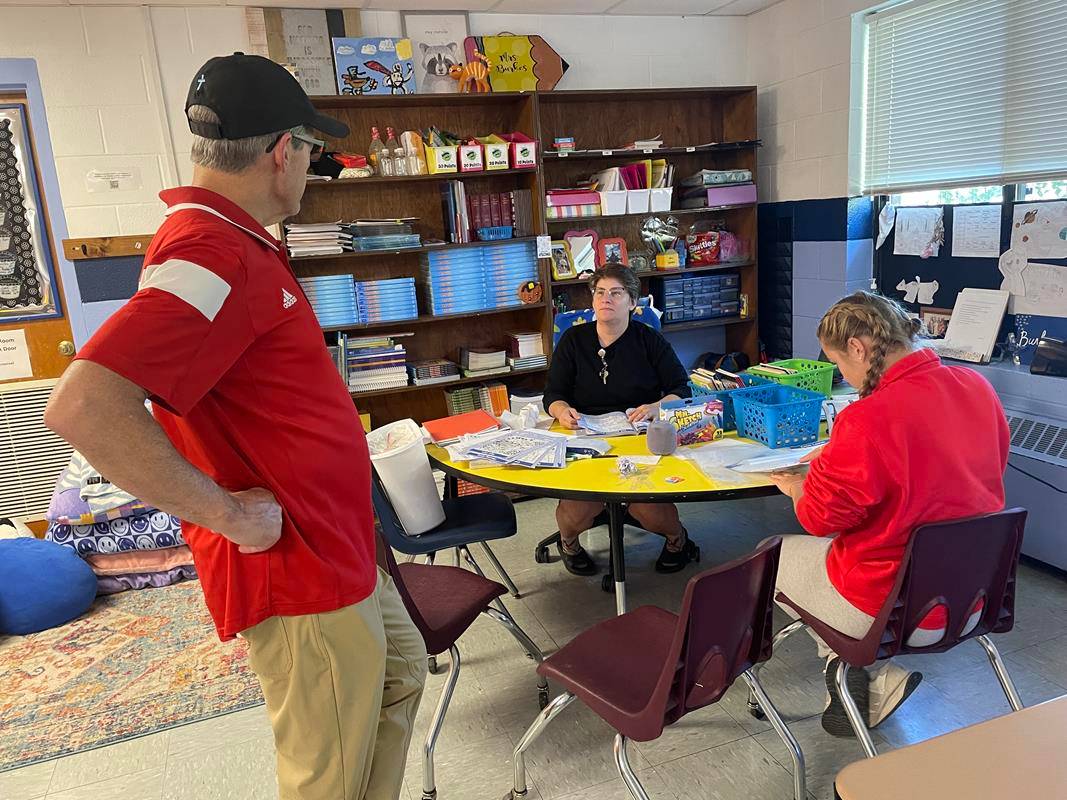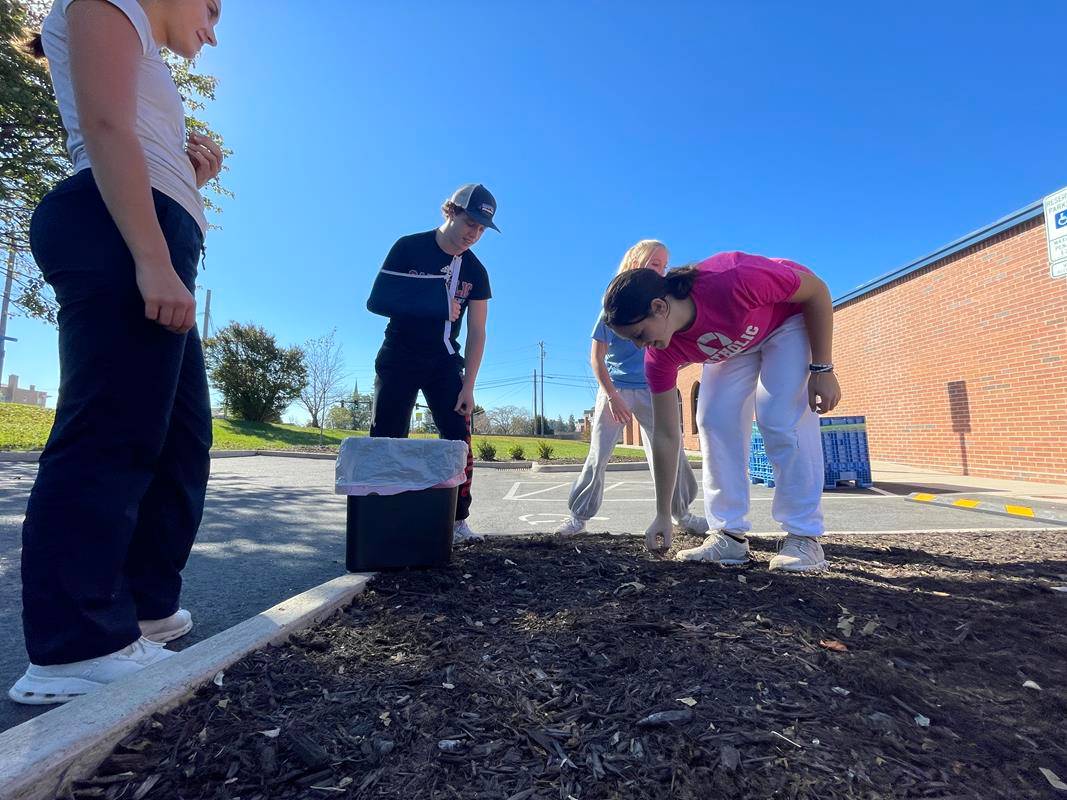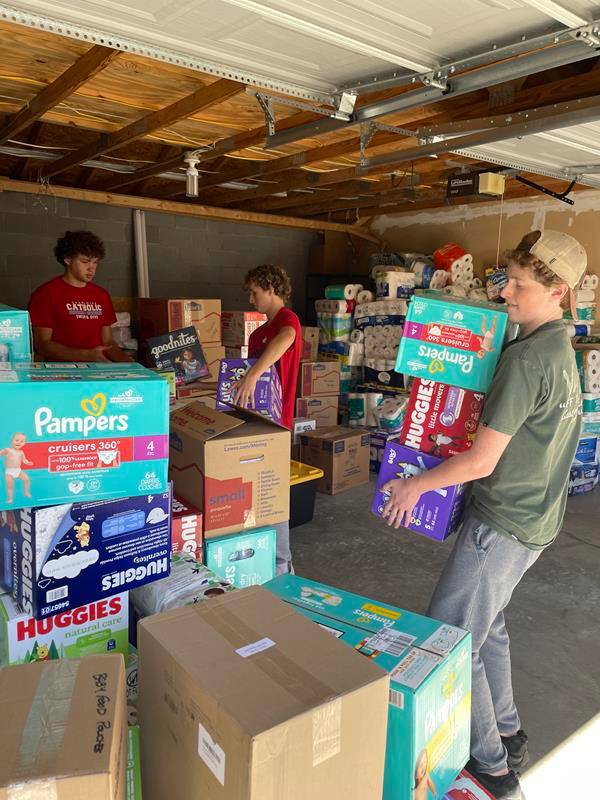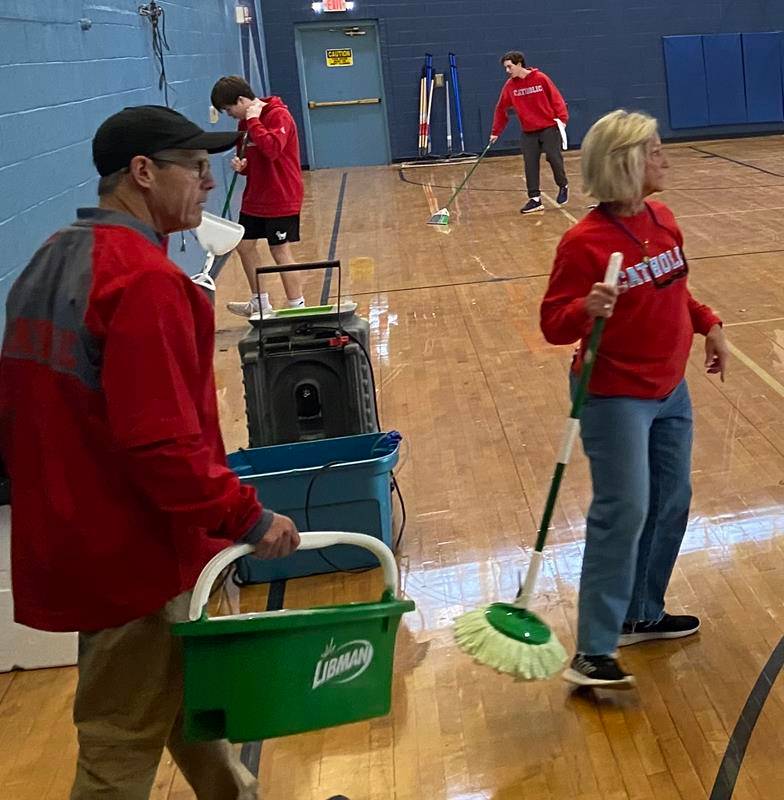 Tears, hugs and stories of grim devastation greeted Bishop Michael Martin as he surveyed damage from Helene firsthand and helped with aid delivery efforts.
Tears, hugs and stories of grim devastation greeted Bishop Michael Martin as he surveyed damage from Helene firsthand and helped with aid delivery efforts.
- SWANNANOA: Swannanoa is one of the communities hardest hit by Helene – the ravaged landscape covered by a thick layer of silt, a reminder of the floodwaters that had swept away homes and lives. (Read more)
- HENDERSONVILLE: The bishop also went to Hendersonville, where Immaculata Catholic School is serving as an aid distribution hub for residents in need. Classes have been canceled, but the school is alive with activity as volunteers receive and unload truckloads of water, food, diapers and other necessities. (Read more.)
- WAYNESVILLE: The bishop celebrated Mass in Waynesville, where more than 10 families in the St. John the Evangelist parish that also encompasses the towns of Clyde and Canton were “catastrophically affected” by the storm. (Read more)
‘You are not alone’
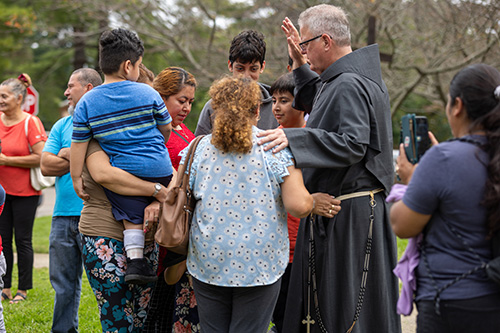 CHARLOTTE — Catholics across the country have banded together with the Diocese of Charlotte to deliver the largest humanitarian effort in the diocese’s history to help the people of western North Carolina recover from Tropical Storm Helene.
CHARLOTTE — Catholics across the country have banded together with the Diocese of Charlotte to deliver the largest humanitarian effort in the diocese’s history to help the people of western North Carolina recover from Tropical Storm Helene.
People from all 50 states and six countries have donated time, talent and treasure – contributing $3.8 million so far – to response-and-recovery efforts led by the diocese’s parishes, schools, central administration and its Catholic Charities agency.
Since Helene hit North Carolina, the diocese has marshaled staff and volunteers from across the state and beyond to provide emergency supplies of food, water and other items to address basic needs of storm victims.
The diocese’s first truckload of supplies from Charlotte arrived in Hendersonville 48 hours after the storm – an effort that quickly grew to a hub-and-spoke operation delivering 48 box-trucks and 16 pickups and trailer loads of supplies to Asheville, Boone, Brevard, Hendersonville, Linville, Swannanoa and Waynesville. Now, the diocese is shifting its focus from providing basics to the arduous task of rebuilding lives – an effort to be led by Catholic Charities, which has been doing such work in western North Carolina for 75 years.
With more than half of the diocese’s territory declared FEMA disaster areas, Bishop Michael Martin, OFM Conv., is launching a “sister parish” program, where parishes that were spared by the storm pair with parishes that were hit hard – to help them financially, materially and spiritually for at least six months.
The diocese covers the western half of North Carolina, and while most of its 92 churches suffered little damage, the people and communities served by many of these churches were devastated by the record rainfall that transformed rivers, streams and low-lying areas into raging waterways. The storm left billions in property damage across the U.S. and nearly 100 confirmed dead in North Carolina alone, with many others still unaccounted for – including at least one parishioner, Gabriel Gonzales, whose jeep was found buried in mud. Many areas remain without power and water after three weeks.
“The stories of outreach to address that devastation have been inspirational,” Bishop Martin said in an email to the diocese’s 160 priests. “The resurrection is being made real by your willingness to give of yourselves in love of those most in need. While some of the immediate needs have been cared for, our longer-term walking with the people affected … remains an important ministry of our local Church.” (Editor’s note: Bishop Martin talks more about the need to accompany storm victims.)
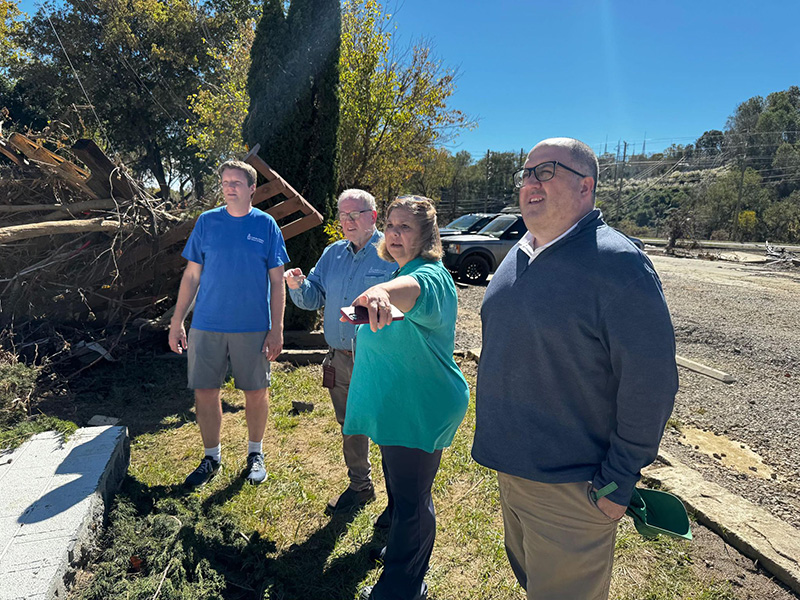 Last week, navigating wreckage and cadaver search teams, local and national Catholic Charities toured storm-damaged areas as the agency sets up outreach operations to find and help families access available government and charitable resources.
Last week, navigating wreckage and cadaver search teams, local and national Catholic Charities toured storm-damaged areas as the agency sets up outreach operations to find and help families access available government and charitable resources.
“We will stand beside you and help you find the support you need to recover and rebuild,” Gerry Carter, executive director and CEO of the diocese’s Catholic Charities agency, pledged in a recent message to storm victims. “It’s been overwhelming to learn about the loss of lives, homes, and jobs … (but) our incredible staff continues to work tirelessly to deliver lifesaving supplies and support.”
Armed with the financial boost from donors across the country and beyond, including a $500,000 grant from Catholic Charities USA, caseworkers will fan out across the mountain regions to find and evaluate the needs of individual families affected by the storm.
Caseworkers – including three who lost their own homes in the storm – will help people apply for and troubleshoot access to FEMA and other government resources, and will evaluate people’s needs for food/water, shelter, improved safety, employment, childcare, medical and special personal needs. They will focus on those in greatest need, with an eye on people with limited English and capacity to navigate various complex aid programs, such as some in the Hispanic community.
“It’s gratifying to see how all parts of the Church have come together to work in concert to help our brothers and sisters in Western North Carolina,” Carter said, “from the Knights of Columbus, the Knights of Malta and other service organizations, to our parishes and schools, to Catholic Charities and our diocesan leadership. We’re all one Church, serving as the hands and feet of our Lord.”
The diocese’s clergy are also traversing ravaged areas to bring supplies, sacraments and spiritual uplift to Catholics and non-Catholics alike. All the while, they’re steadfastly saying Mass to help people restore the rhythm of their faith life and elevate prayers for people lost and challenges ahead. A prayer request page has also been set up on the diocese’s website.
Monsignor Patrick Winslow, who has piloted much of the diocese’s storm response, has consulted with Church leaders in Louisiana who went through Hurricane Katrina. In a letter to priests, he shared sobering news that people’s emotional recovery from the storm will likely take a year.
Survivors of Katrina, the most catastrophic storm on record in the U.S., described three phases of recovery after the storm as “Respond, Reopen, Recover,” focusing first on immediate needs, then on short-term and long-term needs.
“As priests and deacons who have served in these regions, we have observed with shock and sadness the images that are now being shared,” said Monsignor Winslow, the diocese’s vicar general and chancellor who previously served mountain parishes in Tryon and Sparta. “There are a number of pastoral challenges that lie ahead … since the relief efforts will be going on for some time and the human toll will take even longer to address.”
As they visited parishes in the damaged areas, Monsignor Winslow and the bishop emphasized the need for accompaniment and reliance on the Holy Spirit.
“Know that the rest of the world is very much with you,” Bishop Martin told the congregation at Mass in Waynesville on Oct. 6. “There are people all over our diocese, all over our country and all over the world who are reaching out now to let all of you know that you are not alone.”
The devastation from Helene “may seem overwhelming,” he said, yet “that is never beyond the scope of the power of the Holy Spirit to transform into something greater.”
— Liz Chandler
 Add your prayers
Add your prayers
The diocese has an online prayer request form at www.charlottediocese.org/form-prayer-request.
How to help
While parishes will continue to provide many items that remain in short supply in western North Carolina in the wake of Tropical Storm Helene, the focus of relief efforts is shifting toward long-term support and solutions. Here’s how you can help those in need, or get assistance if you live in the affected areas:
Donate money
Monetary donations are the fastest, most flexible and most effective way to support emergency relief efforts. Local responders on the ground can use the funds to help people with immediate as well as long-term needs. Give securely online: www.ccdoc.org/helenerelief.
Need help?
- North Carolina 2-1-1: Use the state’s info hotline (call 211 and press 1, or go online to www.nc211.org) to find information about getting food, water and shelter; finding loved ones; checking current road conditions; filing damage and insurance claims; and other issues.
- FEMA assistance: Go to www.disasterassistance.gov, call 800-621-3362, or download and apply through the FEMA app.
Related news:
-
Bishop Michael Martin, OFM Conv.: Are we ready to walk with those in need?
-
Friends search for Arden parishioner who lived ‘humbly and charitably’
-
National Catholic Charities grant boosts diocese’s Helene relief efforts
- Charlotte Catholic students help Immaculata School prepare for reopening
- Grieving Swannanoa residents greet bishop
- Helene relief flows in
See photo galleries:
Bishop Martin visits Waynesville in wake of Helene
Grieving Swannanoa residents greet bishop
See the storm damage
Bishop Martin surveys Helene relief efforts in WNC
Charlotte Catholic students help Immaculata School prepare for reopening



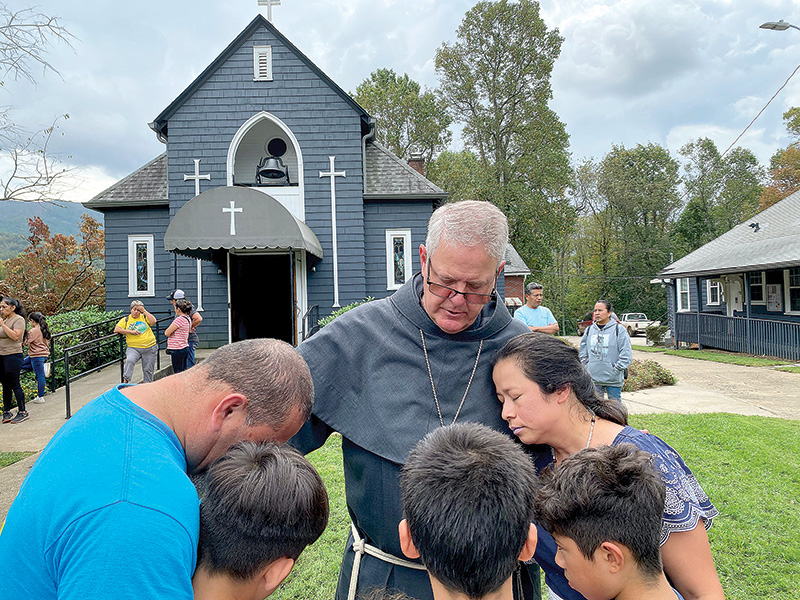 Tears, hugs and stories of grim devastation greeted Bishop Michael Martin as he surveyed damage from Helene firsthand and helped with aid delivery efforts.
Tears, hugs and stories of grim devastation greeted Bishop Michael Martin as he surveyed damage from Helene firsthand and helped with aid delivery efforts.
